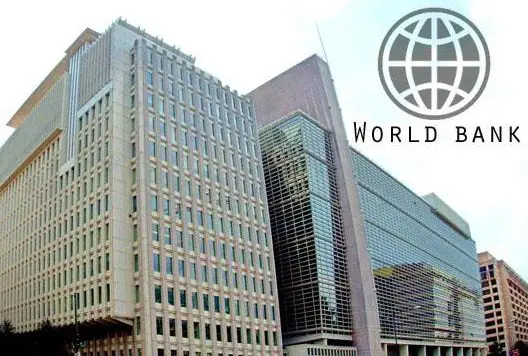A new World Bank report has painted a favourable economic growth for Kenya with the economy expected to grow at 5.4 percent in 2015, an improvement from the 2014 growth rate of 5.3 percent. The report also projects the growth rate in 2016 to be at 5.7 percent.
Speaking during the release of the report, World Bank country director for Kenya Diarietou Gaye said that economic growth for Kenya has all it takes to become one of the best performing economies in Sub Sahara Africa. But he added that this will be determined by the way the government responds and manages the challenges emerging from the current global economic environment.
Dabbed Kenya Economic Update (KEU), the report attributes the economic growth to ongoing infrastructure construction in the country and strong consumer demand.
In recent years, Kenya has embarked on ambitious plans to construct major infrastructure in the country.
For instance, China is constructing the Standard Gauge Railway whose construction is ongoing and is expected to boost the country’s economy.
The railway line which will run from Mombasa-the Kenyan Coast through Nairobi to Malaba on the Kenya-Uganda border is expected to enhance the movement of goods and people across East Africa. Currently, the project has 25,000 local workers.
Early this year, Kenya embarked on major road construction plan covering 10,000km.The roads are being constructed in three phases under the Public Private Partnership (PPP).
In 2014 Kenya signed a Sh42 billion deal with a Chinese communication company for construction of the first three berths of Lamu port, part of the ambitious Lamu Port South Sudan Ethiopia Transport (Lapsset) corridor. The Lapsset project is expected to serve land locked countries in the wider Eastern Africa region.
These construction projects Kenya says are meant to make up for decades of under-investment that stagnated economic growth and cement its status as East and Central Africa commercial hub.
The ministry of Transport and Infrastructure believes that the ambitious infrastructure construction plan will create demand for engineers, surveyors, technicians, machine operators and general workers. Eventually This according to the ministry will reduce the menace of unemployment among an ever growing population in Kenya.
However, John Randa, Senior Economist and the Lead Author of the World Bank report notes that the current expansive fiscal path also presents a real risk to economic growth.
“Although heavy budget on infrastructure is a boost for Kenya’s production space and future growth, the short- to medium-term macro-fiscal framework is vulnerable to macroeconomic shocks,” he cautions.
The Kenya Economic Update report also noted the progress being made by county governments to boost rural economies through the devolution of funds. The Word Bank however underscores the need for transparency, accountability, and public participation as key elements of devolution.
The 12th edition of the KEU was prepared by the World Bank Group in partnership with the National Treasury and members of the Economic Roundtable, who include the Ministry of Devolution and Planning, Council of Governors, Commission for the Implementation of the Constitution, Kenya School of Government and the Center for Parliamentary Studies and Training, Central Bank of Kenya, Kenya Revenue Authority, Kenya Vision 2030, Kenya Institute for Public Policy Research and Analysis, International Monetary Fund, Kenya National Bureau of Statistics, National Economic and Social Council and Office of the Controller of Budget.

Leave a Reply